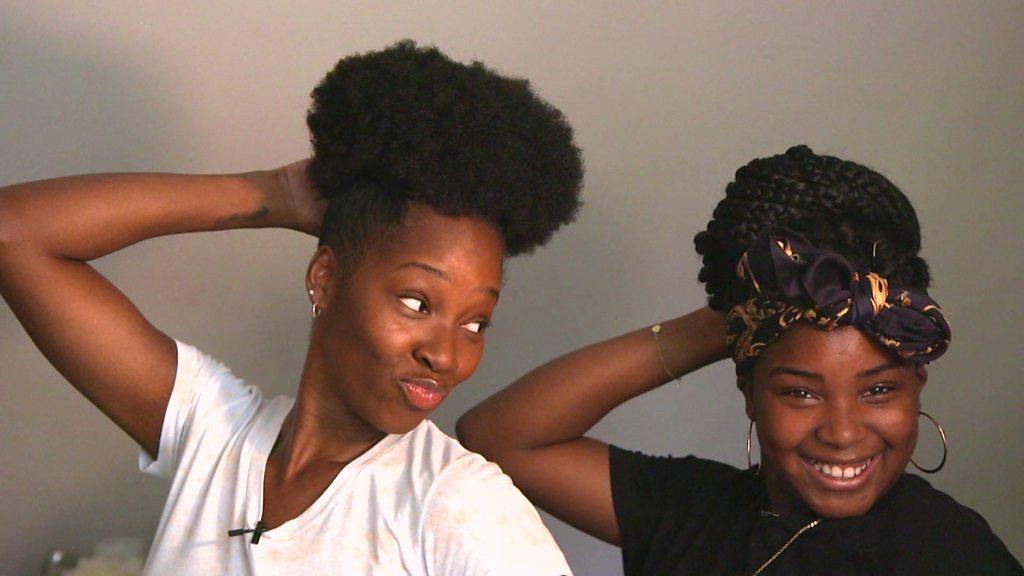Afro hair discrimination should be treated as racism, say MPs and campaigners
- Published
- comments
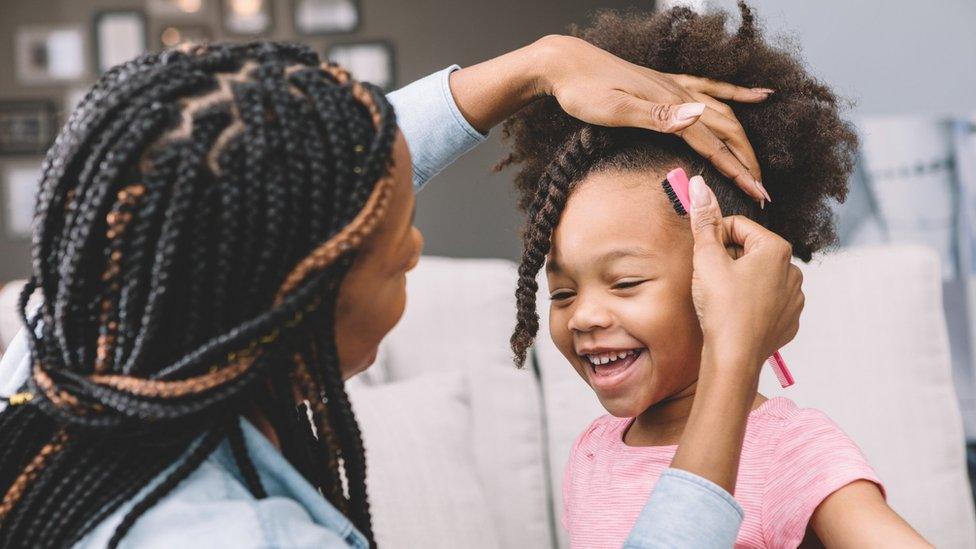
A group of campaigners wants discrimination towards people with afro-textured hair to be officially classed as a form of racism.
A letter signed by Members of Parliament (MPs) Kim Johnson and Wera Hobhouse says that those with afro or textured hair should be legally protected from discrimination.
The letter asks the Equality and Human Rights Commission - whose job it is to make sure all people are treated equally in the UK - to make afro hair a protected characteristic by adding it to those listed in the Equality Act.
Protected characteristics are specific aspects of a person's identity stated in the Equality Act.
Examples of these characteristics are a person's age, disability, race or gender.
By law no one should be discriminated against because of these characteristics.
The campaigners say the aim is to raise awareness of hair discrimination in the UK and highlight the ways in which people with afro-textured hair are treated unfairly.
They say there are many examples of adults and children being discriminated against because of their textured hair - such as children being treated unfairly in school or adults being treated negatively in the workplace.
The group say hair discrimination can be as obvious as using offensive words to describe a person's afro to touching someone's textured hair without their permission to do so.
L'Myah Sharae is leading the campaign supported by the MPs. She founded the All-Party Parliamentary Group on Equality in Education - a group which works with politicians to try to make sure children from ethnic minority backgrounds are treated fairly.
"I myself am a black woman of Caribbean heritage and I have suffered hair discrimination in the work place with people making inappropriate comments," L'Myah told Newsround.
"We've seen research that suggests that lots of black children have been in trouble at school because of their afro hair. It scares me that this will be repeated with future generations of black children unless something is changed.
"I'm extremely hopeful afro hair will be made into a protected characteristic.
"All we're asking for is for (the Equality and Human Rights Commission) to publish official guidance about what afro-hair discrimination is and what steps black parents can take to make sure their children are protected in schools."
World Afro Day: A day to celebrate coiled or curly hair
How have some black children been discriminated against?
In 2019, a study conducted by World Afro Day found that one in six children with afro-textured hair had a bad experience at school.
"There are lots of examples of children who have been discriminated against at school because of their afro hair. In the letter we talk about the cases of Ruby Williams and Josiah Sharpe," Sharae said.
"Josiah was only five years old when he was told his hair style did not fit with school policy standards."
Ruby Williams was repeatedly sent home from school because of her afro hair.
Ruby, now 19, began campaigning with her family to try and make sure that other students didn't experience the same.
Ruby told the BBC that she was sent home on a number of occasions for her hair breaching the school uniform policy that stated "afro style hair must be of reasonable size and length".
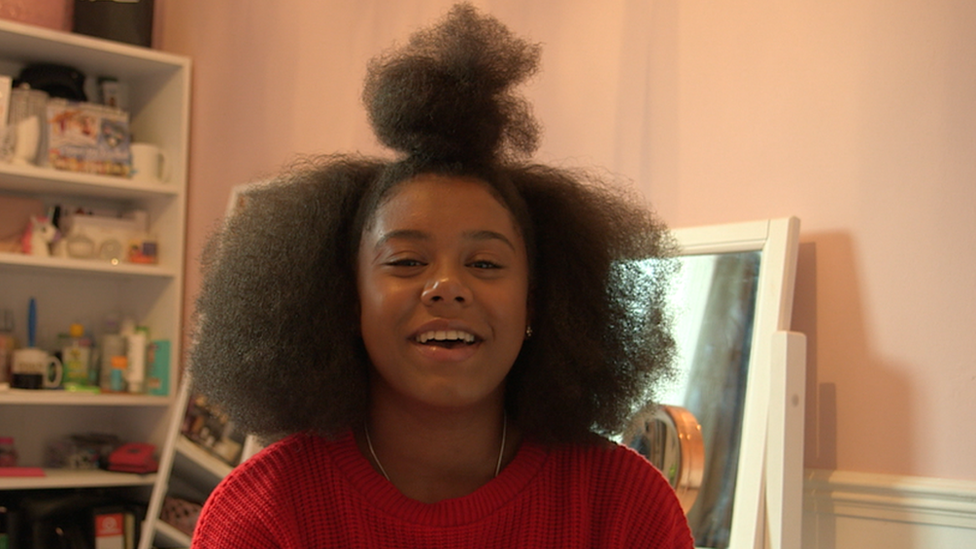
Ruby (pictured) was repeatedly sent home from school because her hair was "too big"
Ruby said she was also told by the head teacher her hair was "too big", and that the school claimed her hair was distracting to other pupils and blocked views of the whiteboard.
Ruby's family decided to take legal action against the school.
Her case was delayed so Ruby and her family decided to settle the matter out of court - which means they came to an agreement without formal court proceedings.
Although the school did not accept any liability (that means it didn't accept that it had done anything wrong) Ruby was awarded £8,500.
Now studying at college Ruby said: "I'm definitely proud of my hair. I'm proud of the progress that it's made and the journey that I've been on.
"I'm proud that my hair is 'too big'."
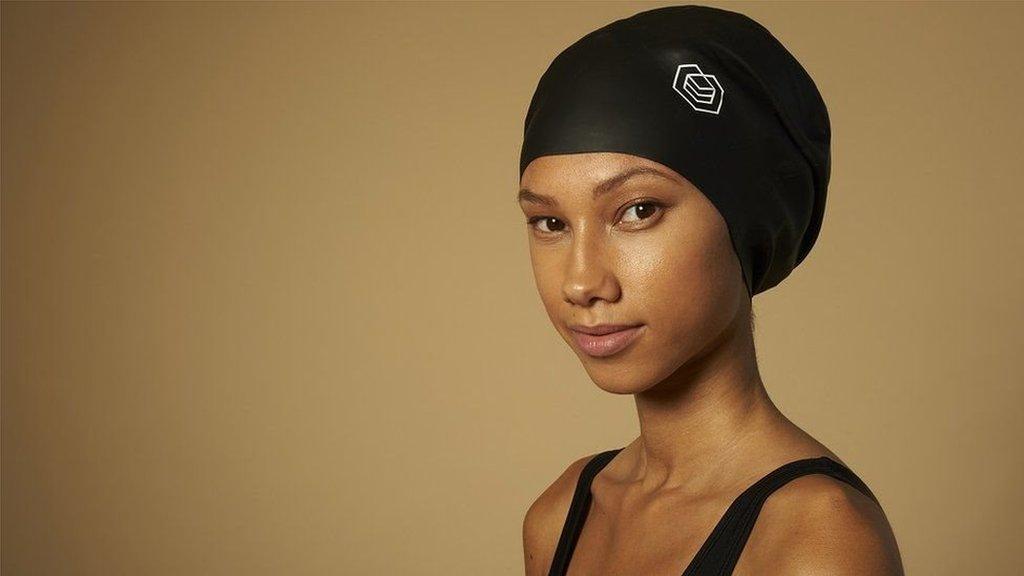
The letter also gives the example of black-owned swimming cap company, Soul Cap.
In July 2021, the company's application to provide swimming caps to black athletes at the Tokyo Olympics was rejected by FINA, the international swimming federation, because the caps didn't "fit the natural form of the head".
At the time, Team GB swimmer Alice Dearing, who was the first black female swimmer to represent Britain at an Olympics, spoke out following Fina's announcement that it would be reviewing its original decision.
"I don't want people to look at elite level swimming and think: 'It's not open for me, I can't wear my hair the way I want to and I'll go and find another sport', because that's not what we want", she said.
What do the campaigners hope to achieve?
Kim Johnson - the MP who wrote the letter - said she hopes the campaign is "given the gravity it deserves" by law makers because it would a "step in the right direction to end discrimination."
"All too often we see the rise of race hate because of appearance. It's important that people have the opportunity to be themselves," she told Newsround.
For L'Myah Sharae the main reason for the campaign is to ensure that black children are empowered to be proud of and maintain who they are.
"It's important to embrace your natural hair and identity, be proud of your roots and however you style your hair," she said.
"You shouldn't let any comment or policy impact on your health and wellbeing and you should always embrace your identity."
- Published15 September 2023
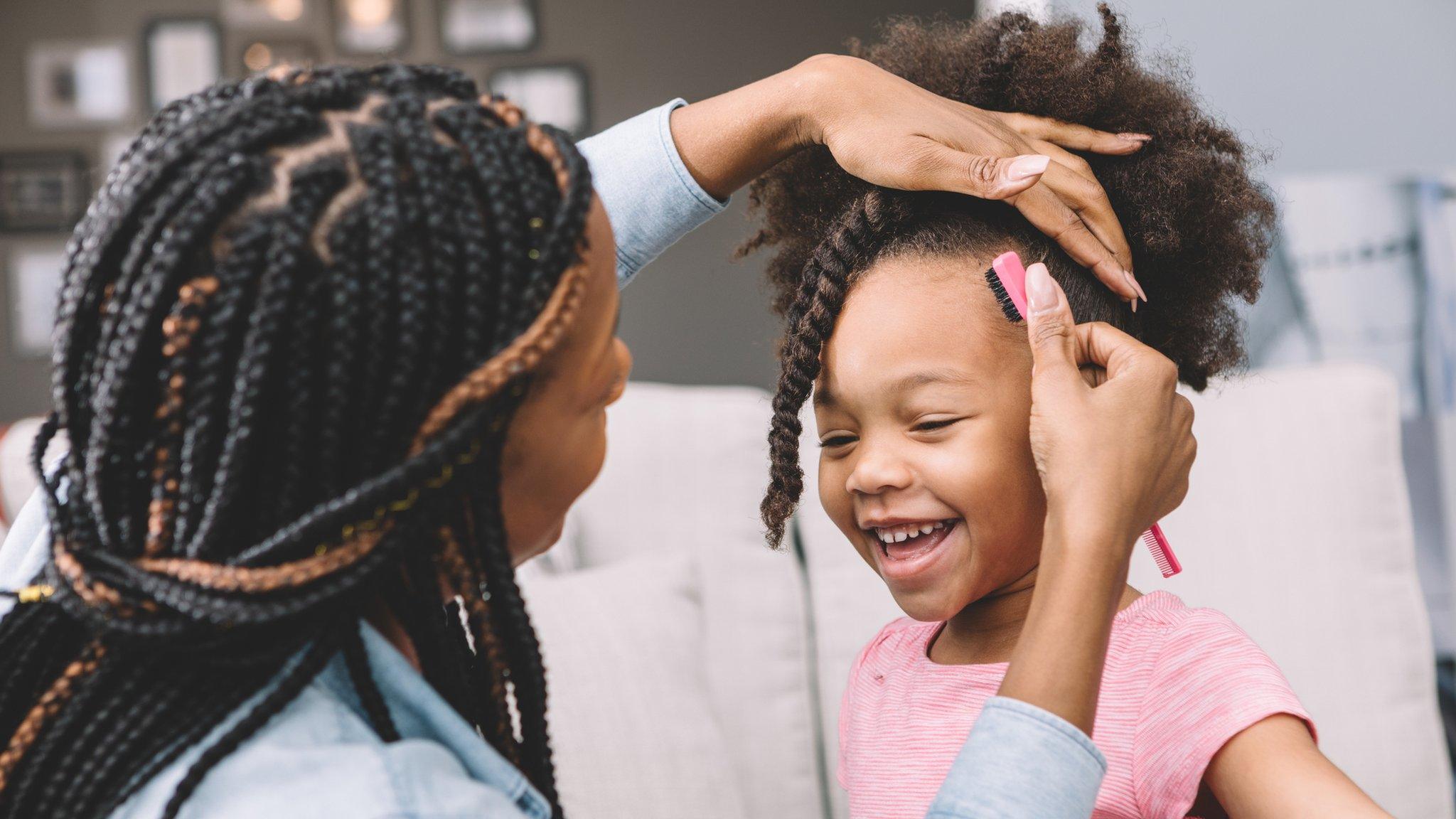
- Published9 December 2020
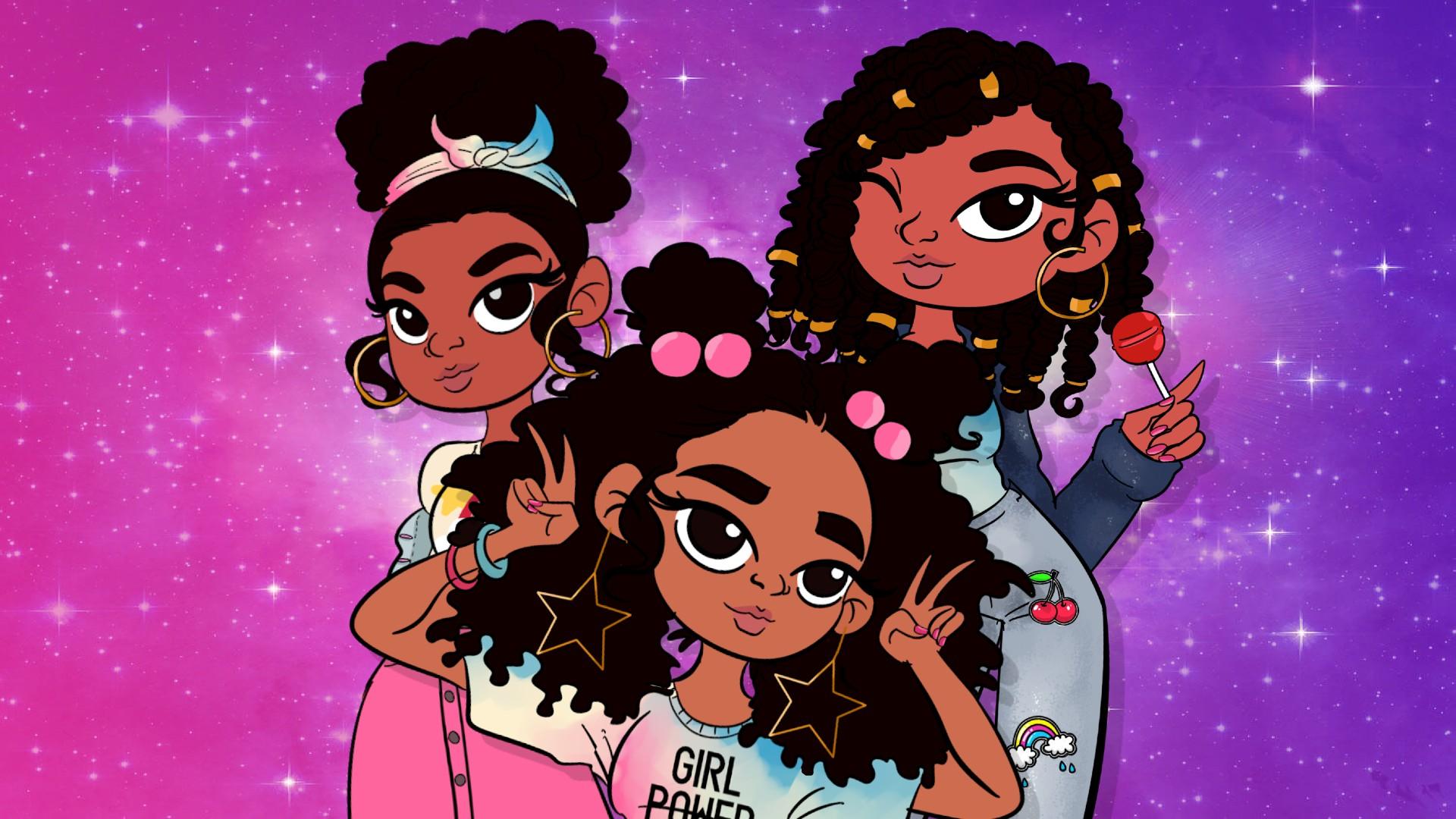
- Published14 September 2018
